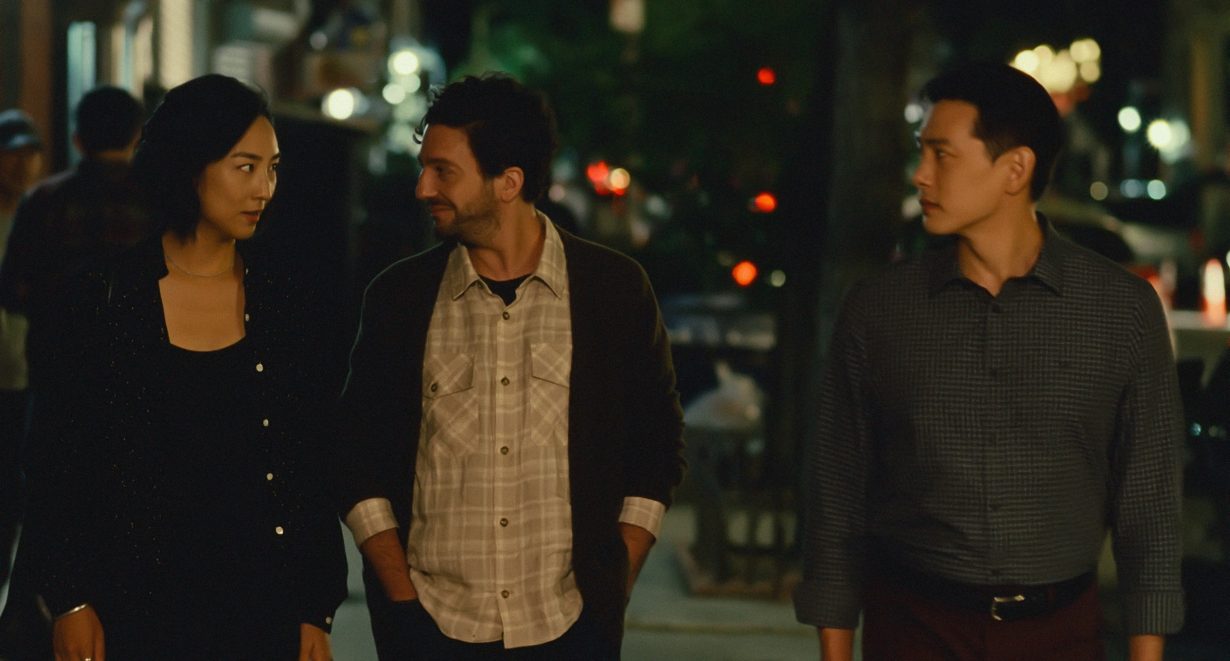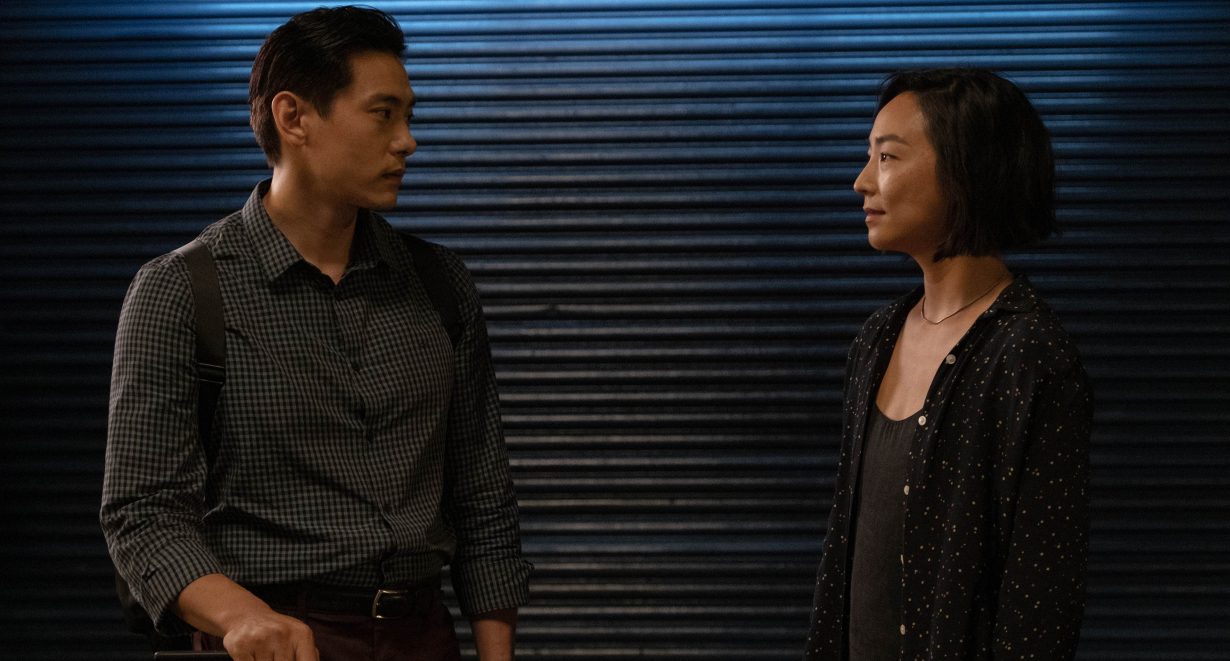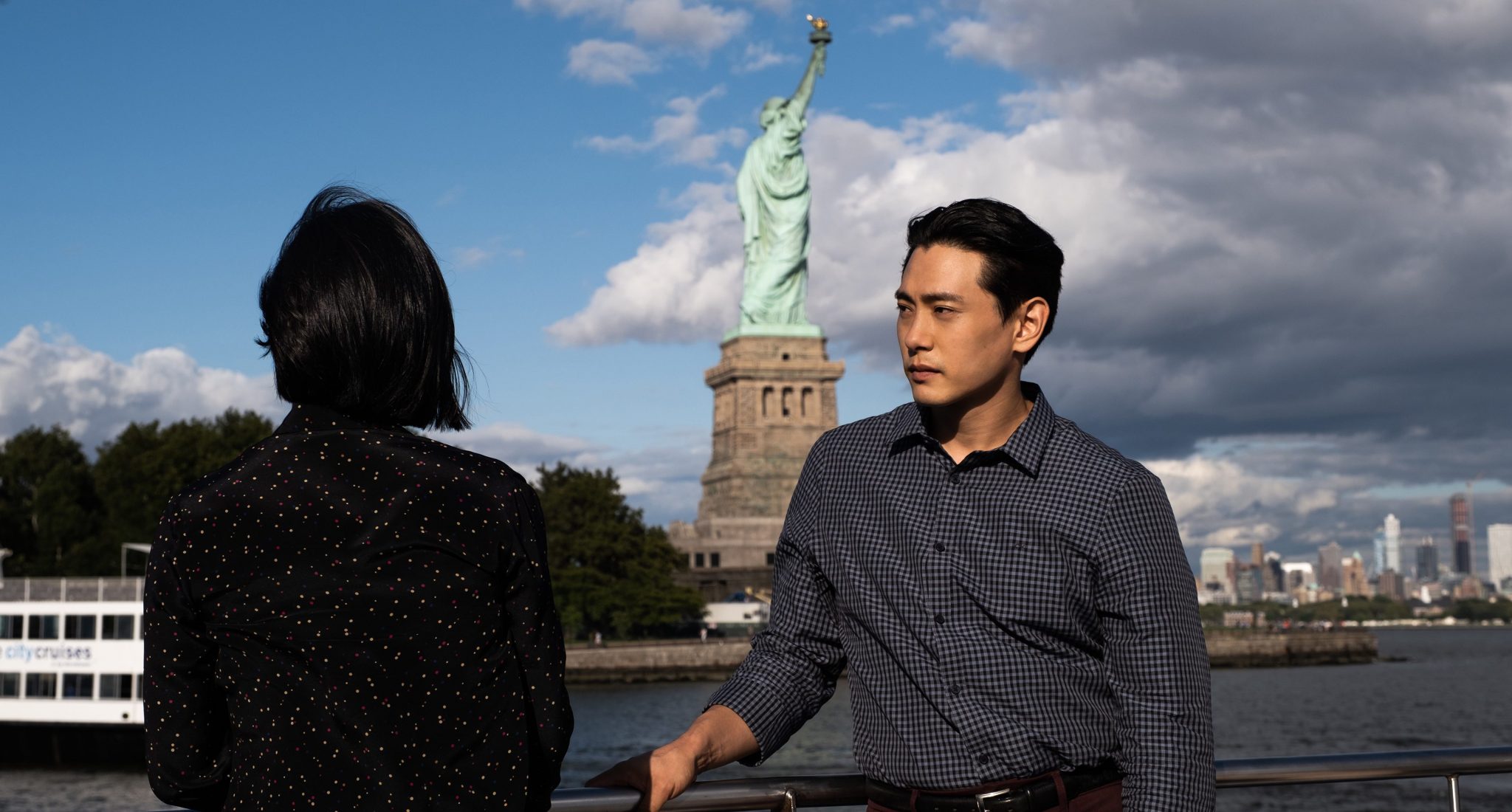The problem of likeability in an ostensible ‘golden age’ of contemporary cinema by the East Asian diaspora
You’re watching a contemporary drama about East Asians who’ve immigrated to the West. The narrative can vary, but often depicts a conflict between an older first generation (stern, repressed) and a younger second generation (independent, rebellious). Its characters are honourable and decent. Despite their disagreements, you get the sense that the film doesn’t want you to think any of them have done anything wrong. In fact, they can feel less like real people and more like proxies for certain ‘types’: the tiger mother, the Westernised child. Peppered throughout are glib ethnic signifiers: lingering shots of kimchi-jjigae or jiaozi, a hackneyed reference to not wearing shoes in the house. You can feel the director ticking off boxes as they go, soliciting high relatability with low effort. It is a polite, earnest film, one that will surely receive awards attention. And yet you can’t help but walk away feeling dissatisfied – this was sold to you as a complex, nuanced story about immigration, so why does its view of immigrant life feel so shallow?

We ostensibly live in a golden age of cinema by the East Asian diaspora. The past few years have seen Everything Everywhere All at Once (2022) take home seven Oscars, the first Asian-led Marvel film, and low-budget critics’ favourites like After Yang (2021) and Minari (2020). Yet these stock conventions – the stale performance of relatability, the beleaguered ‘between two cultures’ navel-gazing – haven’t gone away. For all the handwringing about resisting model minority narratives or lunchbox moments, East Asians on screen largely remain virtuous, diligent, sympathetic, put-upon. They might be, say, Asian Americans, but they’re keen to stress their Americanness first (not least for the sake of awards recognition). Any instances of bad behaviour are quickly rationalised: they’re only cruel to their children because of generational trauma; they only act two-faced because of internalised racism. For an East Asian actor today, progress means being perceived as familiar and likeable. If you want to be oppositional, discomforting or eccentric, opportunities are scarce.
No recent film better illustrates this impoverishment of character than Past Lives. The film, written and directed by Celine Song, chronicles a string of encounters between Nora and Hae Sung, two childhood friends who have sporadically reconnected in the 24 years since she left Seoul for Toronto and later New York. Though Hae Sung has a long-term girlfriend, he pines for Nora, who is already married. These are just about the only facts we know about Hae Sung, besides the most perfunctory biographical details (he studied engineering, did his military service, went to China once). It is hard to imagine the substance of his life without Nora; then again, it’s hard to find much substance in his life with Nora. When asked why he reached out to her in the first place, all he can come up with is: ‘I just wanted to see you one more time’. His longing is what gives the film its emotional charge – he is the one who seeks out Nora on Facebook and travels to New York to meet her in person – yet his motivations remain largely opaque.
Nora doesn’t fare much better. The anchors of her life are conveyed to us more directly: her playwriting, her husband Arthur, her life in New York. But for much of the film she merely functions as a sounding board for the neuroses of the film’s male characters, whether that be Hae Sung’s puppy-dog yearning (‘would we have dated?’) or Arthur’s sexual anxiety (‘are you attracted to him?’). As a result, she’s forced to tiptoe: reassuring the latter, letting the former down gently. Caught in an emotional crossfire, Nora is the one with her guard up, afforded the least room for vulnerability both by the two men and by the script itself. Nor does the film afford her an interior life outside of these two relationships. Her ambition is to make theatre, but you wouldn’t be able to tell: save a passing glimpse at an audition, we barely see any of her creative life. At one point she says, ‘I’m not gonna miss my rehearsals for some dude’, but the film does nothing to prove this side of her to us; it does, however, spend over 90 minutes on her connection to ‘some dude’.

Such thin characterisation belies a thorny, profound premise. Song based the film on her own fraught reunion with a childhood sweetheart, who – like Nora – she ultimately turned down to commit to her life in America. Song has spoken at length in interviews about the difficult emotions that led to this moment: the loss of her Korean childhood self; the racism and misogyny of New York’s theatre scene; the discomfort of trying to reconcile that with her own marriage to a white male playwright. These knotty specificities are what make Song’s own story compelling.
But in the film, they are all but smoothed away. Nora’s immigration story comes with few emotional complications, just gung-ho assurances that Korea was ‘not enough to satisfy [her] ambition’. And despite their intense connection and ample attractiveness, Nora and Hae Sung exhibit no sexual tension, only polite decorum; the script is careful to point out that Hae Sung is on a break with his girlfriend, as if to preemptively counter charges of impropriety. The themes that Past Lives touches on – race, desire, identity – are challenging, painful subjects; they demand self-reflection and honesty. But these are the very qualities that the film lacks. At each opportunity, Song’s script represses its characters’ ugly feelings like selfishness, lust or jealousy in favour of comforting resolutions, prioritising catharsis over confrontation.

Ironically, it is Arthur, the film’s only white character, openly voicing his worries that he is ‘the evil white American husband standing in the way of destiny’, who seems most like a recognisable, specific person. He comes across as spineless, yes, but his racialised self-pity is believable in a way that Nora’s prim civility is not. In his wounded candour he is more of a nuanced character than the film’s East Asian protagonists. The film is an archetypal example of East Asian diaspora cinema’s likeability problem: any opportunity for a character to become morally or emotionally unappealing, and thereby more realistic, is immediately quashed for fear of unsettling audiences, until they are sandpapered down into nothing.
Against such odds, full-bodied, ‘unlikeable’ East Asian characters are being crafted. I see in Nora’s rejection of homeland the queasy self-destruction of Return to Seoul (2022), whose munitions-dealer protagonist has such a warped view of her Korean heritage that she wants to believe arming her birth country is the same as connecting with it. I see in Hae Sung’s romantic masochism the solipsism of Actual People (2021), which follows a college graduate too self-absorbed to realise she has no sense of self at all. These films have the courage and curiosity to be morally ambiguous – to go beyond what is comfortable, towards what is forthright, unvarnished and fully human – a trait sorely lacking in their mainstream counterparts.
Here’s an alternate reading of Past Lives: Hae Sung is an emotionally stunted man who tacitly betrays his girlfriend to chase his fantasy image of a woman he once knew when he was 12. Nora is a status-seeking individualist who has internalised hegemonic Western notions of success and views Korea as ‘too small’ for her ambitions. This is an incomplete portrayal of these two characters, of course. But so is the sterile, frictionless version offered to us in Song’s script. Until our films are capable of capturing both sides, brave enough to show us ugliness as well as beauty, the promise of East Asian diaspora cinema’s golden age will never be realised.
Ian Wang is a writer living in London. His work has been published in the Baffler, Sight & Sound and the New York Times.
